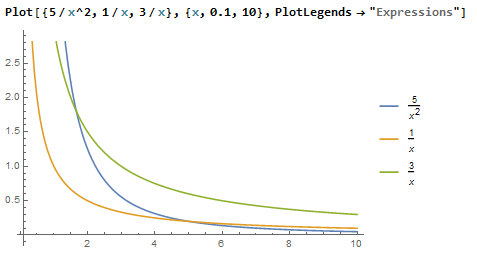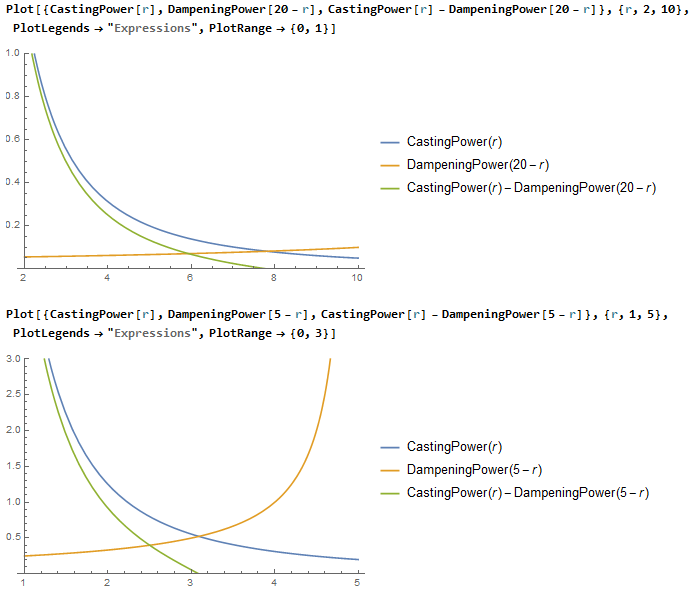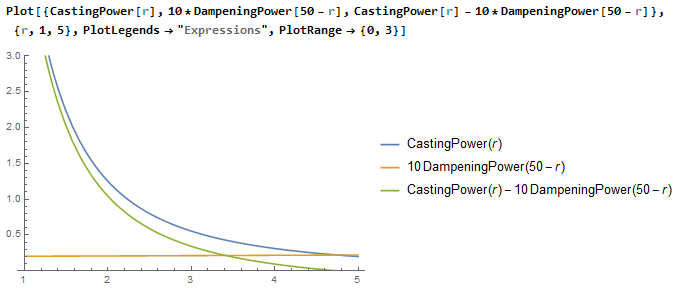Stabilizing reality is easier than disrupting it
If it took far more effort to distort reality than to merely prevent such distortions, active use of mages would be relatively useless. Let's assume a useful degree of distortion - like materializing a fireball - required 5 times as much power than preventing that distortion, using mages would only be useful against armies of 1/5 the size. Since most battles would be fought between roughly equal armies, mages would only assigned as protection from enemy magic.
Stable magical artifacts might be just as hard to suppress as a fireball would be, since in that case reality "got used" to the change, but active magic would fizzle out against the anti-magic fields of the enemy mages unless you had a significant magical power advantage. In addition, trying to actively distort reality would make all other mages in the vicinity aware of the casters position, potentially getting them ambushed by a "classical" strike team (elite units, heavy infantry, cavalry or artifact-enhanced soldiers). Occasionally, one army might bring a disproportionate amount of mages, who could focus their power to enhance the effectiveness of their troops or - in extreme cases, or when some of the stabilizing enemy mages had been killed - rain fire on the enemy army, but most of the time the investment in mages would be just enough to make it uneconomical for the enemy to use mages offensively. Using a disproportionate amount of mages in one army would mean not leaving enough mages to safely defend your other armies, so if your enemy knew of this move, he could potentially overwhelm the defense of several of your armies.
All this turns the assignment of mages into quite a complex mind game, where active magic is rarely seen on the battlefield, but where its potential still influences the flow of battle. Do you hide your mages within your troops and risk them getting hit by a random arrow/stone? Do you hide them in fortified positions that protect, but also alert the enemy army of their position? Do you put mages in the ranks of your servants and put decoys in the mage towers (or whatever fortifications are practical)?
still want some battle magic?
If the ability to influence the world falls off rapidly with increasing distance, somewhat powerful mages might still defend themselves or use magic offensively at close range, but dampening mage hidden between enemy soldiers could very suddenly make him very vulnerable to physical attacks. If detecting the source of a spell is relatively hard, the most common use of magic would be supporting single soldiers from some relatively small distance, while trying not to expose your battlemage to the inevitable counterattack against whoever is close to such an enhanced soldier.
If mages are sufficiently rare, or if at short range distorting magic became more powerful than equivalent stabilizing magic, you'd still get occasional mage duels, and battle mages would still make potent fighters. But they couldn't slaughter entire armies as long as they had some level of magical protection, and overcoming an enemy with troops supported by relatively weak magic would be far cheaper than trying to overwhelm the defenders magically.
Interestingly, in such a case mages would dominate small-scale engagements (where a single mage could annihilate other, potentially unprotected forces, or duel with with single enemy mages without significant physical threat posed by the few 100s of soldiers) while being severely restricted in their effective range in large-scale engagements with multiple mages on each side - the long-range dampening effects would add up, so individual disruptive magic would be useful at increasingly narrow ranges. Clumping together your own mages would make them more effective, but also make your defense more vulnerable - a trade-off only to consider when you are quite desperate.
Math?!
If you want some idea how this might work (you don't necessarily need this, but it might help you imagine useful "laws of magic"), this is how I'd model it (this assumes offensive magic is stronger at close range, but its effectiveness falls off more quickly (to a quarter with doubled distance) than that of counter magic (falls to half at double the distance)):

Offensive magic is quite a bit stronger than dampening magic, so mages can have nice flashy duels at shortish ranges (imagine each unit of distance is ~5-50m, depending how you want such things to work out). Assuming u=10m, single mages would duel with active spells (countering Fireball with Iceshield, or Mirrorwall) until about 50m of distance, from where on disrupting a spell would take less effort than casting it (assuming equally skilled mages). At 10m, you'd have to be 5 times as powerful to simply dampen enemy magic away to nothing!
However, if multiple mages are present, the effective range is much lower: since dampening is easy to coordinate (and perhaps used less mana/energy/crystals/whatever, if any, resource casting spells consumes), with only 3 mages per side, uncoordinated spellcasting is only power effective at a range of ~17m.
If you are far away from the enemy mages, you might conjure a fireball, but the enemy mages would also be less dampened by you and could easily project a defense (or even dampen the fireball away in the time it took to reach them).
A group of mages coordinating their powers would have an extended range, but with a sufficient number of dampeners even than would grow more difficult, since the offensive mages can only clump together so far without interfering with one another, leading to inefficiency.
Under the assumption that fireball bombardment is harder to dispel than dueling magic (eg. if fireballs already in flight are harder to dampen than those in the process being conjured), we get another interesting side effect concerning how sieges would work: each side would try to position their active mages relatively far away from the enemy - a tower in the middle of the city, or a somewhat distant hill/siege fortification - and sling projectiles, hurl stones, etc.
They could materialize these effects in their vicinity, forcing defensive mages to project active defenses, making mages effectively "artillery" and "energy shields" in large sieges.
If spells-in-flight could be dampened efficiently (and targeting troops isn't made easier by some other mechanism), mages would become largely useless in the biggest battles - against 100 enemy dampening mages, any individual caster would only be effective at 0.5m!
One should still needs to consider how mages could affect things between themselves and enemy mages. But a large group of dampeners could still dampen away firebolts quite efficiently.
Note: this uses a model applying the formulas as effectiveness on object at distance x, while the first graph treated the formulas as effectiveness in ranged combat at range x, which is a different mathematical model.

At 200m separation between (equally powerful) caster and dampener, spells would be effective for up to ~75m before dampening was too effective. At only 50m separation, anything up to 30m away could be affected.

If there are just 10 enemy mages within 500m, effective magic would be limited to a radius of at most 48m.
I think I will give this some more thought, and try to come up with a single self-consistent model of magical strength matching your preferences (the latter one breaks down when describing a mage trying to affect objects near an enemy mage within arcane combat range). Do you have any further specific desiderata my "science of magic" should fulfill?
Note: I specifically chose a 1/x² strength scaling, since that allows for practically open-ended power ("reality warping") in a sufficiently small area if undisturbed, and still falls off sufficiently quickly to prevent trivial assassinations of the commander next warcamp, even without magic defense.



